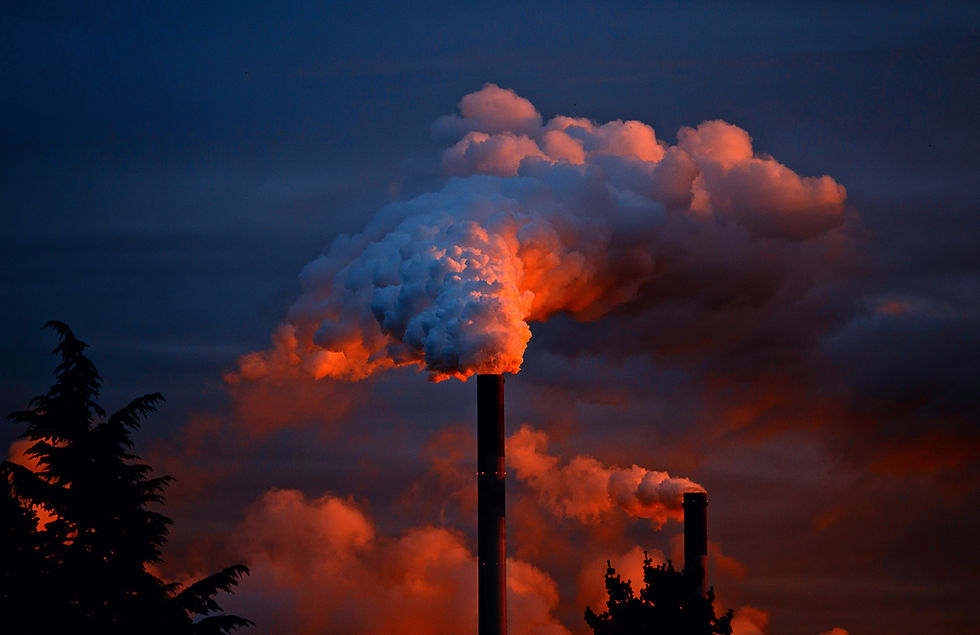Who’s Behind Single Use Plastic Waste?
- Soluzioni Plastiche
- May 21, 2021
- 3 min read
Single-use plastic is an enormous global problem for the environment. It accounts for one-third of total plastic production, and the industry will likely grow by around +30% in the next five years. Companies primarily use fossil fuels to manufacture it, such as oil, coal, and gas. Single-use plastic pollutes in various stages of its supply chain. At the manufacturing stage, there is the problem of greenhouse gas emissions. After the final consumer uses the product only once, they throw it away, frequently contributing to landfill waste. In 2019, 130 million tons of single-use plastic were thrown away in the environment.

These are the premises behind a report that just shocked the industry. The author is the Minderoo Foundation, an Australian philanthropic non-profit organization, in collaboration with academics from the University of Oxford and the Stockholm Environmental Institute.
They published a report called Plastic Waste Makers Index. They intended to detach from the usual view that addresses the single-use plastic problem at the consumer and retailer level. They focused instead on the producers of polymers, petrochemicals used to produce single-use plastic products. The organization followed the documentation evidence that tracks the polymers' life cycle from factories to the single-use plastic conversion up to the final product disposal.
Let's get to the core of this report. It marks five main points.
In 2019, just 20 companies were responsible for more than half of the production of virgin single-use plastic. The top manufacturers are Exxon Mobil, Dow, and Sinopec, which account for 16% of total production combined.
Major investors and banks are funding the industry. 60% of funding comes from twenty global banks and governments, among which the largest are Vanguard and BlackRock, Barclays and JP Morgan Chase. They contributed $30 billion to polymer production since 2011.
This vicious cycle of production of virgin plastic material and funding prevents the industry from transitioning to a more circular economy.
There are no signs of slowing down. If the industry continues to grow at the current rate (the forecast is +30% within 2026), single-use plastics manufacturing could reach between 5 and 10 percent of greenhouse gas emissions by 2050, if countries respect the requirements of the Paris agreements. There are local attempts to fight against virgin plastic use, such as the plastic tax and companies' choices to use recycled material for their packaging; but overall they are not enough to invert the trend of virgin plastic use.
The problem is much more geo-political than expected, because - according to their research - governments are deeply entrenched in the economic interests of the industry, as state ownership reaches up to 30% in the sector. Government and international regulations are essential for solving the problem, according to the report.

The statement doesn't limit itself to exposing the companies involved but tries to address the issue and propose strategies they think would help solve it.
Their central concerns are regulation and transparency. They say governments should force petrochemical companies to disclose their plastic waste footprint and re-design the process to include recycled plastic waste rather than fossil fuels at the manufacturing stage.
According to the Minderoo Foundation, final consumers and retailers should be aware of the companies involved in producing the goods they buy from retailers, including manufacturers and investors.
Let us also tackle the critiques of this report. Revolutionizing an industry doesn't happen overnight. There are enormous economic and incentive problems in transitioning to a circular economy, especially in developing countries with poor waste management and a lack of regulation. Virgin plastic is a cheaper material to produce and has a large investor base.
The problem of single-use plastic waste and pollution is real, reports help us understand the situation more clearly, but it's up to governments to tackle down in the industry and to address the problems of profitability and incentives.
Sources:
Minderoo Organization https://www.minderoo.org/plastic-waste-makers-index/findings/executive-summary/
Euronews https://www.euronews.com/green/2021/05/19/55-of-world-s-plastic-waste-comes-from-just-20-companies

Comments